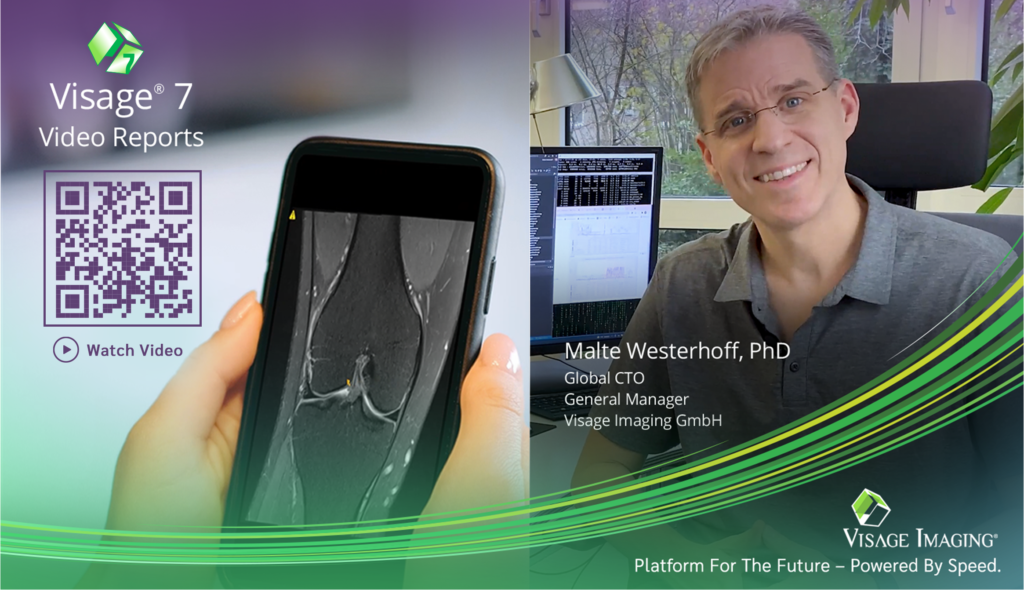Visage Imaging Introduces Easy to Create Video Radiology Reports for Improved Patient Engagement at RSNA 2021
Posted on 01 Dec 2021
Visage Imaging, Inc. (San Diego, CA, USA) demonstrated Visage 7 Video Reports at the Radiological Society of North America (RSNA) 2021 annual meeting held in Chicago, November 28 – Wednesday, December 1, 2021.
AT RSNA 2021, the company announced the global release and availability of Visage 7 Video Reports as a standard feature of version 7.1.17 of the Visage 7 Enterprise Imaging Platform. Traditional radiology reports are filled with complex language and medical jargon that is challenging for patients to understand. While multimedia radiology reports (e.g., reports with key images and embedded tables) may include additional useful information, images are still tough for patients to decipher in the context of radiology report findings.

Visage’s video radiology report provides a new and better way for radiologists to communicate with patients. The video report is approximately one minute in length and is neither a comprehensive report, nor a replacement for the traditional radiology report for referring physicians. Visage 7 Video Reports includes easy to use tools, enabling the interpreting radiologist to quickly create and edit video reports recording 2D and 3D image manipulations directly within Visage 7, while also using the same microphone used for voice recognition. Visage 7 Video Reports are conveniently and securely accessed by patients at home or on mobile devices via their electronic health record (EHR) portal.
At RSNA 2021, Visage also showcased the latest version of the Visage 7 Enterprise Imaging Platform, purpose built and engineered for CloudPACS. Today’s healthcare institutions want to implement modern, flexible, high performance enterprise imaging solutions designed for scale, security and maximum uptime. Visage’s differentiated technology enables radiologists to read with lightning-fast speed and diagnostic precision from either on premise (on customer owned hardware), or via multi-cloud implementations. Visage continues to pioneer complete PACS replacement in the cloud, successfully bringing live the world’s largest CloudPACS implementations. Visage’s experience has been that cloud-based implementations of Visage 7 have the same great performance as on-premise Visage 7 implementations, or in many cases even faster. This is because Visage 7 in the cloud uses highly parallel I/O streams to object-based cloud storage; dynamic allocation of cloud resources for elasticity; and the maximum use of network connections streaming 100% on-demand while using less bandwidth than legacy PACS.
“The Enterprise Imaging move to the cloud has steadily increased over the past several years and Visage has been leading the transformation,“ explained Malte Westerhoff, PhD, Visage Co-Founder and Global Chief Technology Officer. Dr. Westerhoff continued, “Visage built our reputation on having the fastest PACS anywhere when implemented on premise and we’ve raised the bar yet again. We’ve proven that having a cloud-engineered platform provides customers with an even faster Visage 7 experience, while also providing unprecedented security and scalability. This is groundbreaking innovation in action.”
Related Links:
Visage Imaging, Inc.













